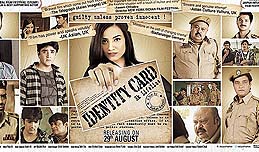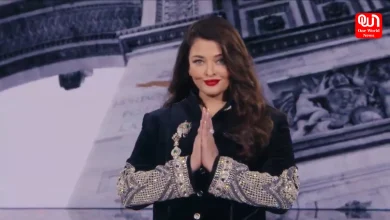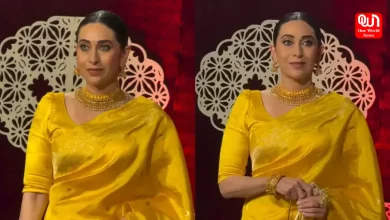Film review: Identity Card Ek Lifeline
Film review: Identity Card Ek Lifeline

Film review: Identity Card Ek Lifeline
Identity Card, a factual movie based upon the identity of people living in Kashmir is a directorial debut of Rahat Kazmi. Ninety per cent of the movie has been shot in an unidentified location of a STF cell (Special Task Force).
The movie talks about a Delhi-based Muslim journalist, her friend and a guide who are locked up in a cell by the STF police. Tia Bajpai, who plays the role of a journalist, goes to Kashmir to shoot its beauty but after falsely getting accused, she experiences the trauma of people of Kashmir and decides instead to make a documentary on thousands of Kashmiri(s) who are fighting for their identity.
The movie which portrays the reality of Kashmir, forces the audience to think as to how much are we indeed aware of Kashmir and the struggle of its people. It is true that the only thing we know about the state is that the two countries are fighting for it and people are living amidst bomb blasts and curfews as a part of their daily routine. We just turn the pages of our newspaper, read the newsfeed sipping a cup of coffee, or at the most share it on social networking sites and forget all about it, the next morning!

Actress Tia Bajpai with actors Furqan Merchant and Shoib Kazmi
However, when we see in reality the people who are facing this trauma every day; all of which has become their lifestyle- the struggle and the identity crisis have that they go through is a black mark on our nation’s development. The film shows a local guide who is forced to choose a wrong path just because he wants to lead a free life. The STF policemen also want transfers or are ready to be a “watchman” than be in the team of killing innocent lives. The dialogue of the STF head (Vipin Sharma) is quite justified, where he says, “I don’t kill people, I save them and in the process, they are killed”.
The shooting of the movie has been entirely done in Kashmir. The audience feels like they are taking a tour of the ‘Heaven of India’, thanks to the camera man (Mujahid Raza) and the guide (played by Shoib Kazmi).
It is a short film of less than two hours without intermission. The harassment and third degree torture will remind you of John Abraham’s movie New York. Seeing the reality of the state, outsiders will think twice before visiting J & K. It’s high time that the government should take some steps to curb these regional problems.
The film also takes a stand conveying that not all Muslims are terrorists, again carrying the same message as My Name is Khan. But also adds, “Khuda aesa nahi ho sakta, humne aesa bana liya hai taaki hamari galtiyan chupi rahe”. This is a step taken to change the mentality of the people and stop associating Muslims with terrorism.

A scene from the movie
The film in the end shows how the life in Kashmir actually is and what media makes out of it. People residing in other parts of the country think that innocents are being brutally murdered by the men in uniform and thus turn these innocents into heroes but the factual scenario behind these so-called-innocent killings is quite shocking.
The songs sung by Shibani Kashyap and the poetry by Baba Bulle Shah have been put in the background between the scenes. Written by Sanjay Amar and produced by Zeba Sajid, the film is presented by Amar Chand Motion pictures and Helping Hand productions. It dates back to July 2008, reminding a real-life incident which happened back then.
The pictures of the history of Kashmir consisting of its fight for independence, Tribal invasion, Shimla Agreement (1972) and Dogra Rule (1846 to 1947) is showcased at the end with a song “Jo na jaane, haq ki taakat”.
A good effort to show the real life of Kashmiris, besides the terrorism, the movie will be releasing in the nearby theatres on 29th August, 2014.
One World News rates this movie as 4.5/5
Have a news story, an interesting write-up or simply a suggestion? Write to us at info@oneworldnews.in







